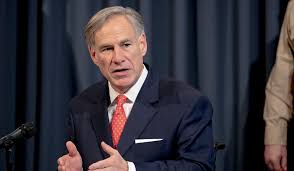
Texas Gov. Greg Abbott is guaranteeing his citizens won’t have issues with maintaining power this winter, according to televised news reports in the Lone Star State.
“I can guarantee the lights will stay on,” Abbott told FOX 7 in Austin during Thanksgiving week. “I signed almost a dozen laws that make the power grid more effective.”
Abbott was referring to multiple bills he signed into law this year to reform the Electric Reliability Council of Texas (ERCOT).
In June, Abbott signed Senate Bills 2 and 3, which requires the weatherization of power generation facilities, natural gas facilities and transmission facilities to handle extreme weather and prevent another monumental failure of the Texas power grid as seen during Winter Storm Uri.
“During the winter storm, too many Texans were left without heat or power for days on end, and I immediately made reforming ERCOT and weatherizing the power system emergency items,” Abbott said. “These laws will improve the reliability of the electric grid and help ensure these problems never happen again.”
The North American Electric Reliability Corporation (NERC) released a report on November 16 about the cold snap and weather outages experienced by Texans in February. The report stated that “the extent to which the Event was caused by the failure of all types of generating units to prepare for extreme cold weather or associated freezing precipitation, cannot be overstated.”
“The principal cause of generating unit outages was freezing components and systems resulting from the cold temperatures and precipitation,” the report states. “Freezing issues and fuel issues combined to cause 75% of all unplanned generating unit outages, derates and failures to start during the Event.”
According to a report from KXAN in Austin, Abbott said he personally spoke to natural gas pipeline transmitters and was assured that they are conducting winterization precautions.
In October, Texas utility regulators approved a rule that requires power companies to weatherize their facilities against extreme weather conditions; however, a report from the Texas Tribune states that the details on how to weatherize facilities have been left up to the state’s Public Utility Commission, which regulates utilities.
The rule says power companies have to use “best efforts” to ensure power plants can continue to operate during winter weather conditions.
Winter Storm Uri caused the “largest controlled firm load shed event in U.S. history,” according to NERC’s report. Millions of Texans lost power. The NERC report states that an estimated 210 people died during the catastrophic event.
“Analysts with the Federal Reserve Bank of Dallas estimated that the outages caused direct and indirect losses to the Texas economy of between $80 to $130 billion,” according to the NERC report.
While the severity of Winter Storm Uri was a rare occurrence for Texas, with record-setting snowfall in some areas, there is cause for concern if it happens again this winter.
“If we see a recurrence of the storm we saw last year, people should probably be worried,” director of Public Citizen’s Texas office Adrian Shelley told the Texas Tribune.
“Extreme weather events, such as the one in February 2021, are unfortunately becoming more commonplace and the electricity ecosystem needs to come together to plan for and prepare to operate under more extreme, longer duration, and wide-area weather events,” said Jim Robb, NERC President and CEO.
Robb’s comment coincided with the release of the NERC report, which includes 28 recommendations that aim to prevent a repeat of the failures experienced during Winter Storm Uri.
Some of the recommendations include revisions to the NERC Reliability Standards surrounding generator winterization and gas-electric coordination and utilization of weather forecasts to better predict electric demand.
“I think all consumers need to be treating winter the same way those along the Gulf Coast treat hurricane season (and) make sure you have supplies handy,” said Ed Hirs, an energy expert with the University of Houston.






